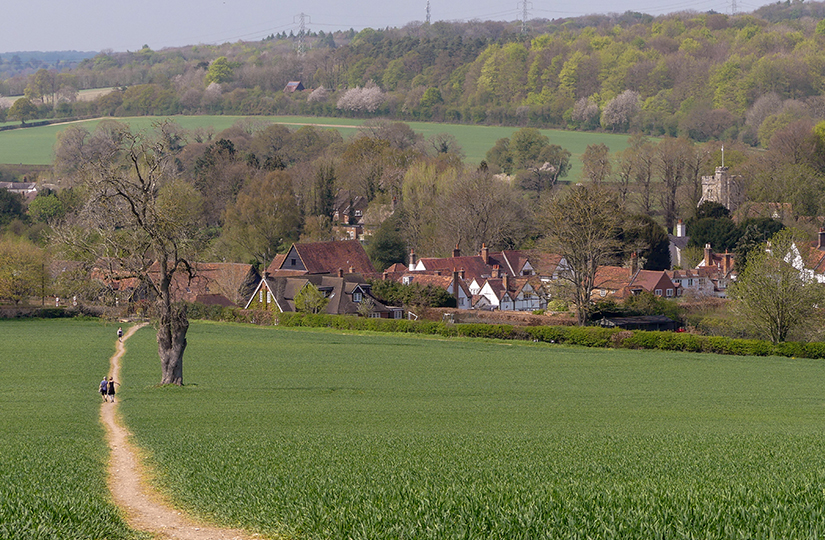Land Business Update | Week Commencing 5th April 2021
Welcome to our update on key land management, farming, planning and energy issues.
FARMING
Reports published on a sustainable future for Scottish farming and food
A number of groups, representing the different farming and land use sectors in Scotland, have published a series of reports on how they think they can adapt to and reduce climate change and to enhance biodiversity and be financially viable. The government will consider the reports as it develops a new rural support scheme for Scotland.
Scottish farm incomes fall by a third
The average farm income fell by 36% to £25,800 in 2019/20, its second lowest value over the last eight years, from £40,300. The fall is a result of increased costs (+2%), and lower revenues from farm output (-5%), support payments and profits from diversification, and includes some of the effects of COVID-19. This resulted in the average farm making a loss from its agricultural activity of £25,500, which is over twice the loss made in the previous year. NB The survey does not include farms which do not receive support payments, such as pigs, poultry and horticulture.
ECONOMY
National Living Wage and National Minimum Wage
The minimum wages, which are the minimum amount per hour that most workers in the UK should receive, have risen by 1.5 – 3.6% from 1st April onwards. A significant change this year is that anyone aged 23 or over must receive the National Living Wage; the age limit was previously 25 and over:
- National Living Wage (23+) has increased 2.2%, from £8.72 to £8.91
- National Minimum Wage (21-22) has increased 2%, from £8.20 to £8.36
- National Minimum Wage (18-20) has increased 1.7% from £6.45 to £6.56
- National Minimum Wage (under 18) has increased 1.5% from £4.55 to £4.62
- Apprentice Rate has increased 3.6% from £4.15 to £4.30
FORESTRY
Woodland Carbon Code revised
The Woodland Carbon Code is the voluntary standard for UK woodland creation projects where claims are made about the carbon dioxide they sequester. It sets out the rules for claiming carbon credits and how they are validated and verified. One of the most significant changes in this latest revision of the Code is that, after 30th June 2021, projects have to be registered with the Code before planting starts; therefore, any planting done in winter 2020 / 21 must be registered before 30th June to be eligible for Woodland Carbon Units. There are also changes on additionality, carbon calculations and monitoring.
Forestry England Woodland Partnership offers 60 or 120 year leases to plant new woodlands
The leases, to Forestry England which need to cover a minimum of 50 hectares and provide public access, offer a guaranteed rental income to landowners in return for the long-term lease. It is not known what rent will be paid. Forestry England will design, plant and manage the new woodland. The sites will generate carbon credits through the Woodland Carbon Code. The closing date for applications is 1st June.
PROPERTY
Electrical safety in private rented homes in England
The Electrical Safety Standards in the Private Rented Sector (England) Regulations 2020 mean landlords will have to ensure that electrical wiring, sockets, consumer units and other fixed electrical parts in rented homes are inspected and tested every five years by a suitably qualified person. All existing tenancies must have an Electrical Installation Condition Report (EICR) in place by 1st April 2021. NB Properties that already have a report will not need to replace it until five years have passed since it was issued if no changes have been made to the electrical system. Anyone commissioning a check must make sure that it is done by someone competent and with current qualifications. For further details speak to Jess Waddington and download our checklist. Scotland has had similar regulations since 2016.
Revised Countryside Code published for England and Wales
This is the first update of the Code for over a decade and the main changes are:
- New advice for people to ‘be nice, say hello, share the space’ as well as ‘enjoy your visit, have fun, make a memory’.
- This is combined with a ‘refreshed tone of voice’ so that the Code is a guide for people, rather than a list of rules.
- To stay on marked footpaths, even if they are muddy, to protect crops and wildlife.
- Information on permissions to do certain outdoor activities, such as wild swimming.
- Clearer rules for dog walkers to take home dog mess and use their own bin if a there are no public waste bins.
- New wording to make clear that the Code applies to all natural places, including parks, waterways, coast and countryside.
Green Homes Grant voucher closes early
The aim of the scheme was to enable homeowners and landlords to upgrade their homes and properties with energy-saving features, such as insulation or double glazing, in order to reduce energy usage and improve the energy efficiency of a property. The government closed the scheme to new applications on 31st March, only six months after it was launched. It originally had £1.6bn of funding a year and aimed to improve 600,000 houses. However, by mid-February it had only issued vouchers for 22,000 homes. The scheme had been criticised widely since its launch for being difficult to apply to and for chaotic administration. A review by the House of Commons Environmental Audit Select Committee called it botched, with too few installers certified to work under the scheme, and said it was actually damaging the building sector. It is not known what, if anything, will replace it but many organisations have called for the scheme to be revised, not scrapped. The government is preparing a Heat and Buildings Strategy.
Energy performance of commercial buildings
The government has published threeconsultations aimed at improving the energy and carbon performance of commercial and industrial buildings in England and Wales. Two consultations cover proposals to introduce a national performance-based policy framework for rating the energy and carbon performance of commercial and industrial buildings above 1,000m² in England and Wales, with annual ratings and mandatory disclosure as the first step. The third consultation is about improving the implementation of the Non-Domestic Private Rented Sector (PRS) Regulations, which will require all rented commercial and industrial buildings across England and Wales to install cost-effective improvements to meet Minimum Energy Efficiency Standards (MEES) up to an EPC B by 2030.
TELECOMS
Gigabit Broadband Voucher Scheme
The government has recently confirmed that a third round of the scheme opened on 8th April 2021, with a total funding pot of £210m on offer. The scheme offers grants (known as vouchers) to anyone with a connection speed of less than 100mbps in rural areas where no investment is already planned to improve broadband infrastructure. Eligible premises can receive up to £1,500 per home or £3,500 per business. Applicants must be part of a group scheme, meaning two or more homes or businesses combining
vouchers towards a shared cost of installation. Please contact Paul Williams for further details about the scheme and the process for applying. The Financial Times has noted that some rural communities may not be eligible for the scheme as some are not covered by the initial phase of Project Gigabit. Any agreement may be subject to the Electronics Communications Code.






